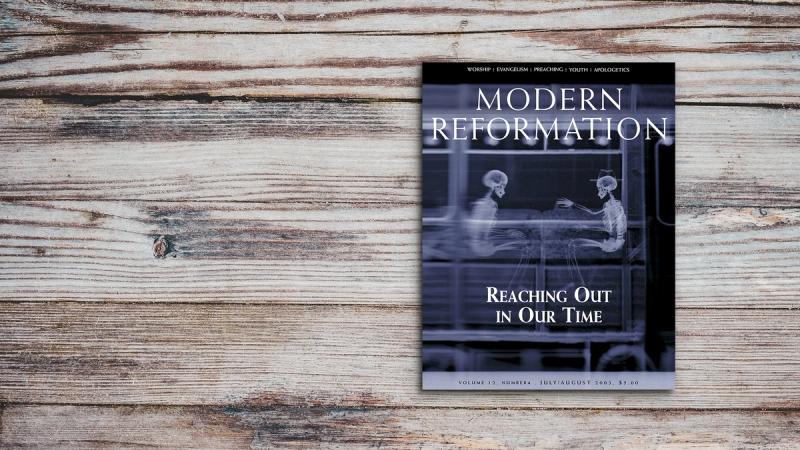Pluralism has emerged as a hot topic among Christians today. This can suggest that it is a new phenomenon, representing a thoroughly unique situation with new tensions and benefits. But as Ecclesiastes states, “There is nothing new under the sun.” Although the extent of modern pluralism is new, God’s people have encountered the competitive interaction of diverse worldviews for thousands of years.
In Egypt, Israel’s challenge was to preserve her faith in the midst of another religion. Later in Canaan, it was to conquer diverse idolatries. God’s judgment on Israel in the Babylonian captivity was prompted by her having adulterously betrayed him in favor of disgusting local religions that belonged to cultures that God had commanded her to eliminate. In Christ’s time, although she had managed to maintain a sense of her own identity in the midst of the Greco-Roman climate, Israel had replaced Abraham’s religion of faith with a hollow legalism. Jesus challenged his hearers to turn away from false religion of all kinds, Jewish or Gentile, and to turn to him alone for salvation. The early church faced paganism, emperor worship, philosophy, Judaism, or eastern mysticism squarely with its salvation message. From Pentecost onward, she was challenged to share the gospel in a culturally, ethnically, and religiously pluralistic scene. Modern pluralism is global, but our challenges are not much different than the ones that faced Christians then.
Our first goal as we engage a pluralistic society sounds simple, but it may be the most difficult: “Religion that is pure and undefiled before God, the Father, is this: to visit orphans and widows in their affliction, and to keep oneself unstained from the world” (James 1:27). We must cultivate a holy lifestyle that actively seeks to know and obey God’s Word by banishing all corrupting influences. The pure in heart also reach out to care for those in need and thus avoid the separatist, ghetto mentality that characterized many Pharisees. Only spiritually upright believers are adequately equipped to carry out this evangelical lifestyle, being ready in and out of season to share the reason for their hope (see 1 Pet. 3:15).
Paul demonstrated in his preaching a basic knowledge of the religions that he countered. Effective witness must do the same today. In the twenty-first century, we should be at least generally aware of the world’s distinct religious and cultural perspectives so that we can engage others in intelligent conversations. Studying other religions in order to share our faith more effectively can be a daunting prospect because their terminologies and concepts can be so confusing. In fact, it is just plain hard work to learn other faiths well enough to have discussions with our friends. In addition, many non-Christians assume there is universal salvation and are repulsed by our claims about sin and judgment. The answer to our hesitation or ambivalence about sharing the gospel is the simple fact that Jesus Christ commands his church to do so (see Matt. 28:19-20), and he equips us for the task with the power supplied by the Scriptures and the Holy Spirit (see 2 Tim. 3:14-16; Acts 1:8, 2:4). If we are devoted to living holy lives and are knowledgeable about our faith and the beliefs of others as well as devoted to taking every thought captive to obey Christ (see 2 Cor. 10:5), then joy-filled evangelism follows naturally.
Ancient Israel was charged to seek and destroy all idolaters, but we are charged to seek and save the lost. This requires compassion, energy, and understanding. Those who do their divinely appointed jobs as ambassadors for Christ will be persecuted (see 2 Tim. 3:12). In fact, if we are not being persecuted, then we should ask if our lives are really manifesting the gospel. Jesus warned, “If the world hates you, know that it has hated me before it hated you” (John 15:18). Yet when we are falsely reviled we are blessed just like the prophets, and we will receive a great heavenly reward (see Matt. 5:11-12).
Sometimes Christians paint life in a pluralistic world as a foreboding prospect where truth is threatened at every turn and nonbelievers are enemies who are suspect until they prove themselves worthy to hear the gospel. A different “spin” goes like this: pluralism, global communication and travel, and English’s dominance as an international language provide us with what may be history’s greatest harvest field. The mission field is both “over there” and “right here,” next door. So we must make certain that our lives are blameless. We must research the sacred texts of our neighbors’ religions. We must befriend them and pray for them, sincerely caring for them so they know that they are not just another mission project. We must ask them to explain their beliefs and then discuss how they differ from ours. We must pray that our witness to them will show the gospel in both our words and our daily lives. Above all, we must love them unconditionally, as God does: Christianity is the only religion where salvation is an unearned gift that has the sure outcome of a transformed earthly life and eternal joy in the presence of a personal, loving God. No other religion guarantees salvation and provides the peace of knowing that the weight of our eternal destiny is not borne by us, but by God himself in Christ. We must reflect seriously on just how revolutionary Jesus’ gospel is, especially in an age confused by a hodgepodge of worldviews that all require reliance upon self for fulfillment and redemption.
So our modern pluralistic situation is not unique, although it does present some distinctive challenges. Pluralism should excite our hearts as we are stretched to think through the content and implications of the gospel and see the evangelistic opportunities that pluralism allows. Spiritual complacency has no place today. Though pluralism threatens to stain even us by the impurities of its tainted fruit, we are after all equipped and enabled by the Holy Spirit to overcome all obstacles.





